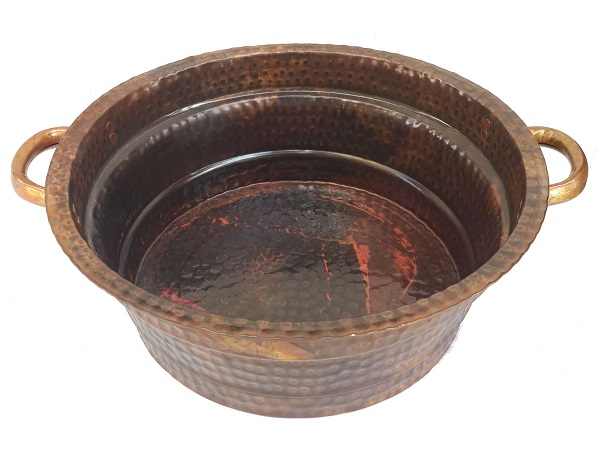FWP:
SETS == DOUBLE ACTIVATION; MUSHAIRAH
What a lovely verse of wordplay-- and a classic mushairah verse too. The first line, a relative clause, is tantalizingly incomplete. Under mushairah performance conditions, we are forced to wait in suspense for the second line-- and even then, not until the very end of the line does the ideal, perfect, doubly activated word suddenly explode into our minds with a burst of sheer pleasure, retrospectively bringing the whole verse to several kinds of life:
= lagan means 'contact, touch' (as well as 'affection, attachment'); the beloved, perhaps out of sheer (coquettish?) perversity, seeks to thwart the lover's desire to touch her feet, even if he approaches her in the humblest possible manner.
= lagan refers to a vessel used for washing hands or feet (see the definitions above); in her perversity the beloved draws her feet back from the basin in which the lover seeks to wash them.
As if this perfect pair of meanings weren't enough, there's also an additional layer of wordplay: lagan refers to a vessel made of copper or brass, while the beloved is 'silver-bodied'; she is thus made of a much more precious metal, and perhaps seeks to avoid contact with an inferior one.
Not one single commentary that I've read even mentions this
one word that focuses and activates the whole delight of the verse. Go figure!

Nazm:
The author has taken this theme from the women's idiom: they say, 'May the Lord grant that your husband again and again wash your feet, and again and again drink the water'-- that is, may he love you very much. Otherwise, in reality to wash the feet and drink the water is no style of love. And the origin of this idiom seems to be that among the Hindus, they worship the feet of Brahmins, and one of the acts of worship is to wash the feet and drink the water. (129-30)
== Nazm page 129; Nazm page 130